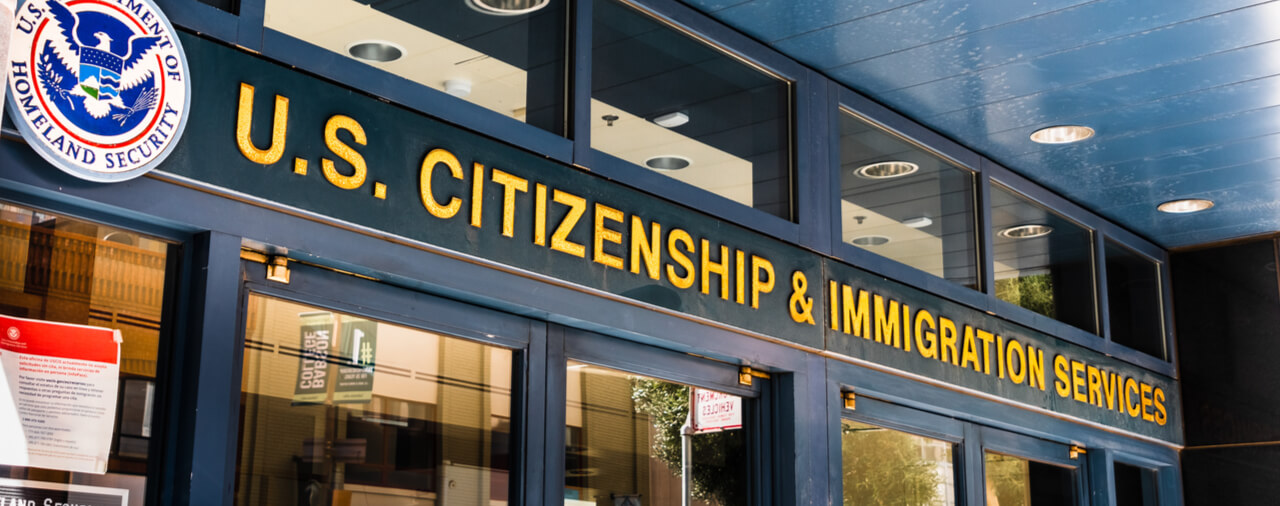Guidance for Residents of Illinois on New Public Charge Rule
- Introduction
- Illinois Residents Must Use Prior Form I-485
- Extension of Stay and Change of Status Applications for Petitioners in Illinois
- Effect of Moving In or Out of Illinois
- Conclusion
Introduction
On February 24, 2020, the United States Citizenship and Immigration Services (USCIS) will begin implementing its new public charge rule nationwide, except in Illinois [see article]. The new public charge rule remains enjoined in Illinois by the United States District Court for the Northern District of Illinois [see article]. The USCIS provided guidance for public charge determinations in Illinois under the current legal situation [PDF version].
Illinois Residents Must Use Prior Form I-485
The injunction against the public charge rule in Illinois means that applicants for adjustment of status who live in Illinois and who are subject to the previous public charge ground of inadmissibility are not subject to the new public charge rule. These applicants will instead continue to be subject to the previous public charge rule, which was promulgated in 1999. We discuss the prior public charge rule in a separate article on site [see article].
In order to determine whether an adjustment applicant actually lives in Illinois, the USCIS will use the applicant's current physical address, as provided in section 14 on the prior edition of the Form I-485, Application to Register Permanent Residence or Adjust Status (ed. dates July 15, 2019, or December 13, 2017).
Although the USCIS has published a new version of the Form I-485, adjustment applicants in Illinois must continue to file their applicants on the July 15, 2019, or December 13, 2017, editions of the Form I-485. Illinois applicants do not need to submit the new Form I-944, Declaration of Self Sufficiency, with their Forms I-485. The USCIS will reject any adjustment application filed by a resident of Illinois on the new Form I-485 or any such application that is accompanied by the Form I-944.
Applicants from Illinois are otherwise required to submit all initial evidence and the correct application fees.
The following are the mailing addresses for applications filed by or on behalf of aliens in Illinois who are subject to the public charge ground of inadmissibility:
[USPS]
USCIS Nebraska Service Center
ATTN: Illinois Team
P.O. Box 82521
Lincoln, NE 68501
Courier Service
USCIS Nebraska Service Center
ATTN: Illinois Team
850 'S' Street
Lincoln, NE 68508
Extension of Stay and Change of Status Applications for Petitioners in Illinois
Due to the district court injunction, applicants and petitioners in Illinois seeking to extend an alien's nonimmigrant stay or change an alien's nonimmigrant status are not subject to the public charge final rule.
Form I-539, Application to Extend/Change Nonimmigrant Status: The USCIS will use the applicant's physical address to determine whether he or she is subject to the final rule. If the physical address is in Illinois, the final rule will not apply.
Form I-129, Petition for a Nonimmigrant Worker: The USCIS will use the petitioner's/employer's physical address and the beneficiary's physical address, as listed on the Form I-129, to determine whether the beneficiary of the petition is subject to the final rule. If the physical address is determined to be in Illinois, the final rule will not apply. This guidance applies in full to the Form I-129CW, Petition for a CNMI-Only Nonimmigrant Transitional Worker.
Petitioners filing the Form I-129 who are covered by the injunction in Illinois must use the prior version of the Form I-129 that has an edition date of January 8, 2020 (or January 31, 2019, while that edition remains acceptable. Petitioners covered by the Illinois injunction who file the Form I-129CW must use the prior version of the Form I-129CW that has an edition date of December 2, 2019. The edition date for all USCIS forms is found on the page of the form and in the form instructions.
Petitioners who are covered by the injunction should continue to send their Form I-129 or Form I-129CW to the direct filing address for those forms provided at uscis.gov, along with any accompanying Form I-539.
The USCIS will reject any petition filed on the incorrect version of the Form I-129, as well as any accompanying Form I-539.
The USCIS added that any applicant who is covered by the Illinois injunction who submits the Form I-539 alone and not concurrently with a Form I-129 or Form I-129CW, should use the December 2, 2019 edition date and send their application to the following address:
[USPS]
USCIS Nebraska Service Center
ATTN: I-539 Team
P.O. Box 82521
Lincoln, NE 68501
[Courier Service]
USCIS Nebraska Service Center
ATTN: I-539 Team
850 'S' Street
Lincoln, NE 68508
Electronic filing will no longer be available to Form I-539 applicants in Illinois starting on or after February 24, 2020.
Effect of Moving In or Out of Illinois
The USCIS will not apply the public charge final rule to an applicant, petitioner, or beneficiary for adjustment of status, extension of stay, or change of status whose physical address is in Illinois at any point during the adjudication of the application or petition, so long as the USCIS is notified of a bona fide change in the applicant's, beneficiary's, or petitioner's physical address to a location in Illinois before the USCIS concludes its adjudication of the relevant application or petition.
In the case of the Form I-129, this guidance applies to cases where either the beneficiary or the petitioner/employer changes its physical address to a location in Illinois at any point during the adjudication process, so long as the USCIS is notified before completing adjudication of the relevant application or petition and the change is bona fide.
To be clear, the final rule will not apply if the applicant, beneficiary, or petitioner/employer physically resided in Illinois, but notified the USCIS of a bona fide change in physical address to a different state while the application or petition is pending.
By signing an application or petition, the applicant or petitioner is certifying, under penalty of perjury, that the physical address provided on the form is true and correct. Thus, the applicant, petitioner, or beneficiary may face serious adverse consequences for listing a false physical address or location on any USCIS form.
Conclusion
For the time being, the public charge rule will apply nationwide except to applicants, petitioners, and beneficiaries having a physical address in Illinois. This benefits those living in Illinois who would otherwise be affected by the new public charge rule to the extent that the previous public charge rule is more favorable to petitioners and beneficiaries than the new public charge rule. However, because the USCIS has published new forms for the rest of the country as part of implementing the public charge final rule, applicants, petitioners, and beneficiaries who reside in Illinois must use the prior versions of all affected forms. Failure to do so will result in the outright denial of the application or petition.
At some point in the future, the situation regarding the public charge final rule will be resolved with finality for the entire country, including Illinois. However, so long as the current situation remains, certain applicants, petitioners, and beneficiaries in Illinois must ensure that they follow the correct procedures. An experienced immigration attorney may provide guidance on completing and properly filing USCIS forms, as well as any and all issues related to the relevant application or petition.
We will continue to update the website with more guidance on the legal situation involving the public charge final rule as it becomes available.

- Alexander J. Segal's blog
- Log in to post comments
